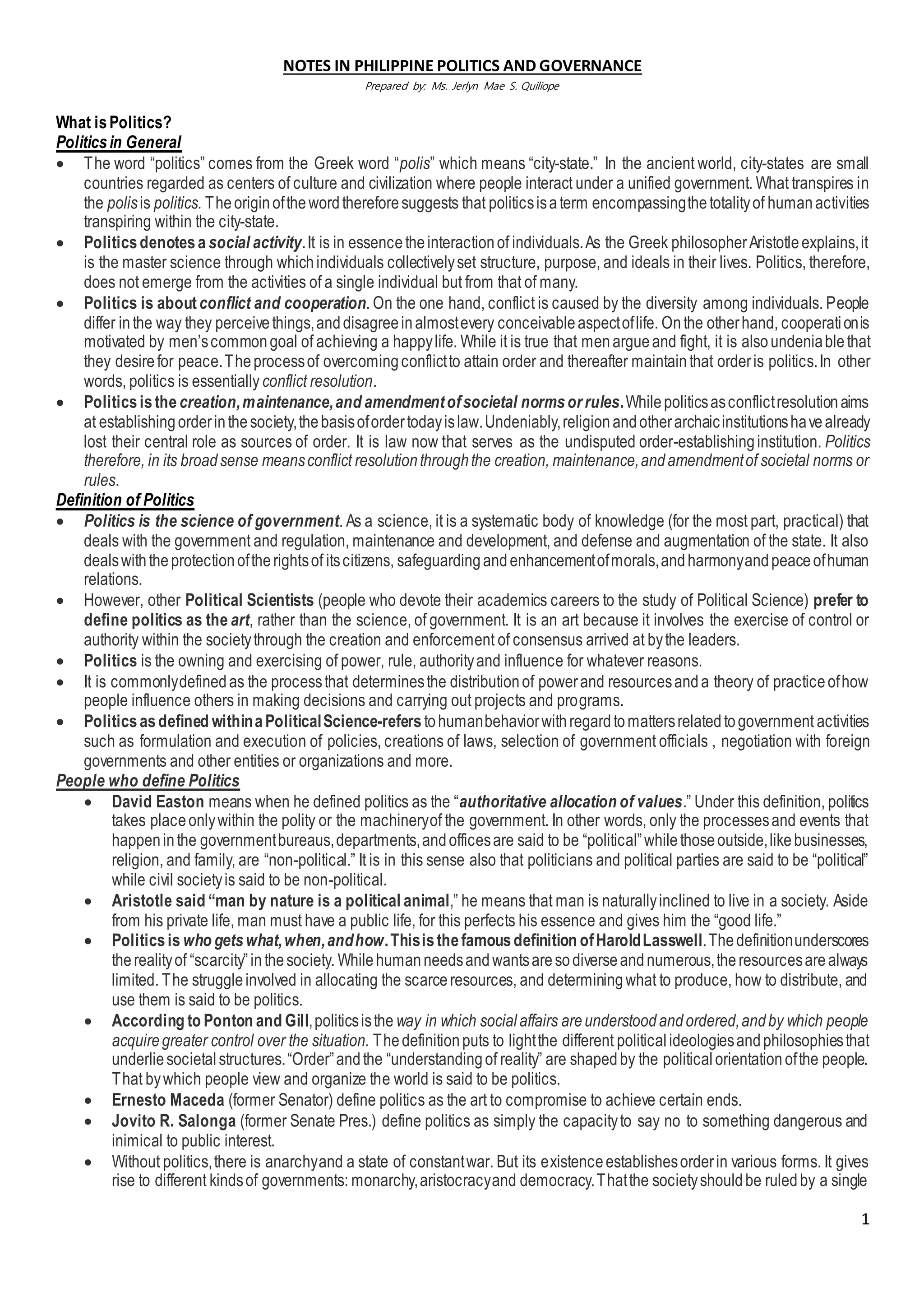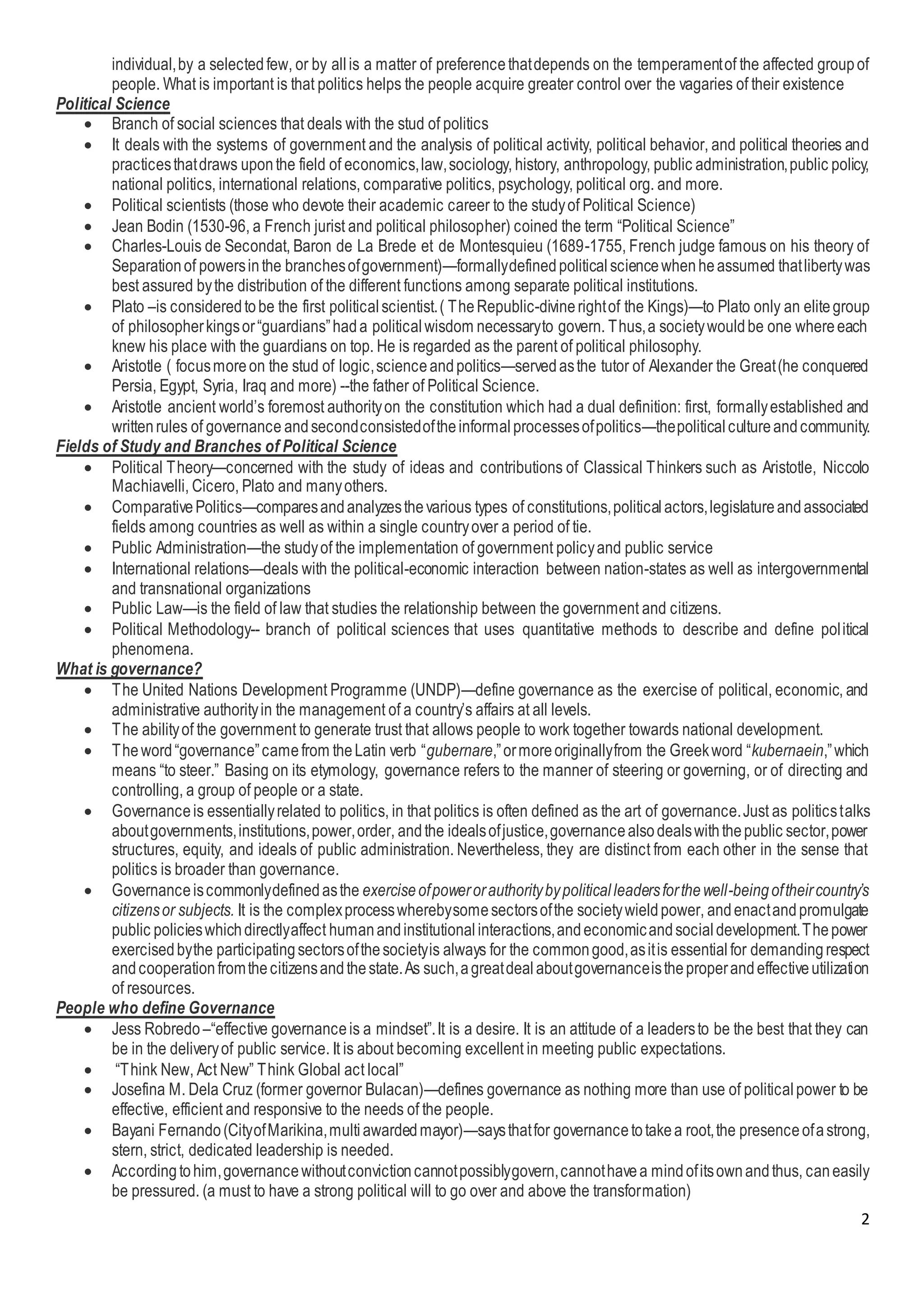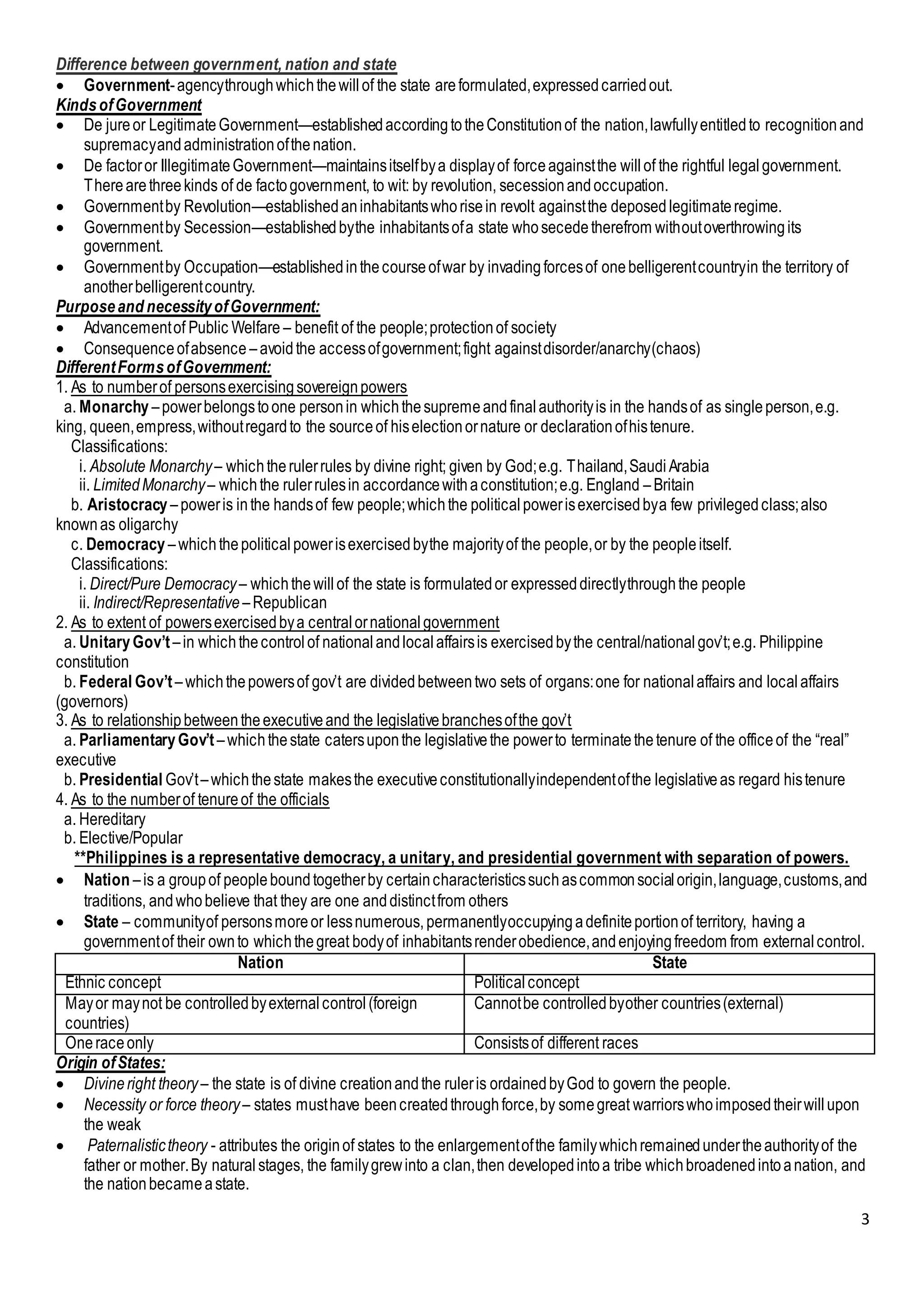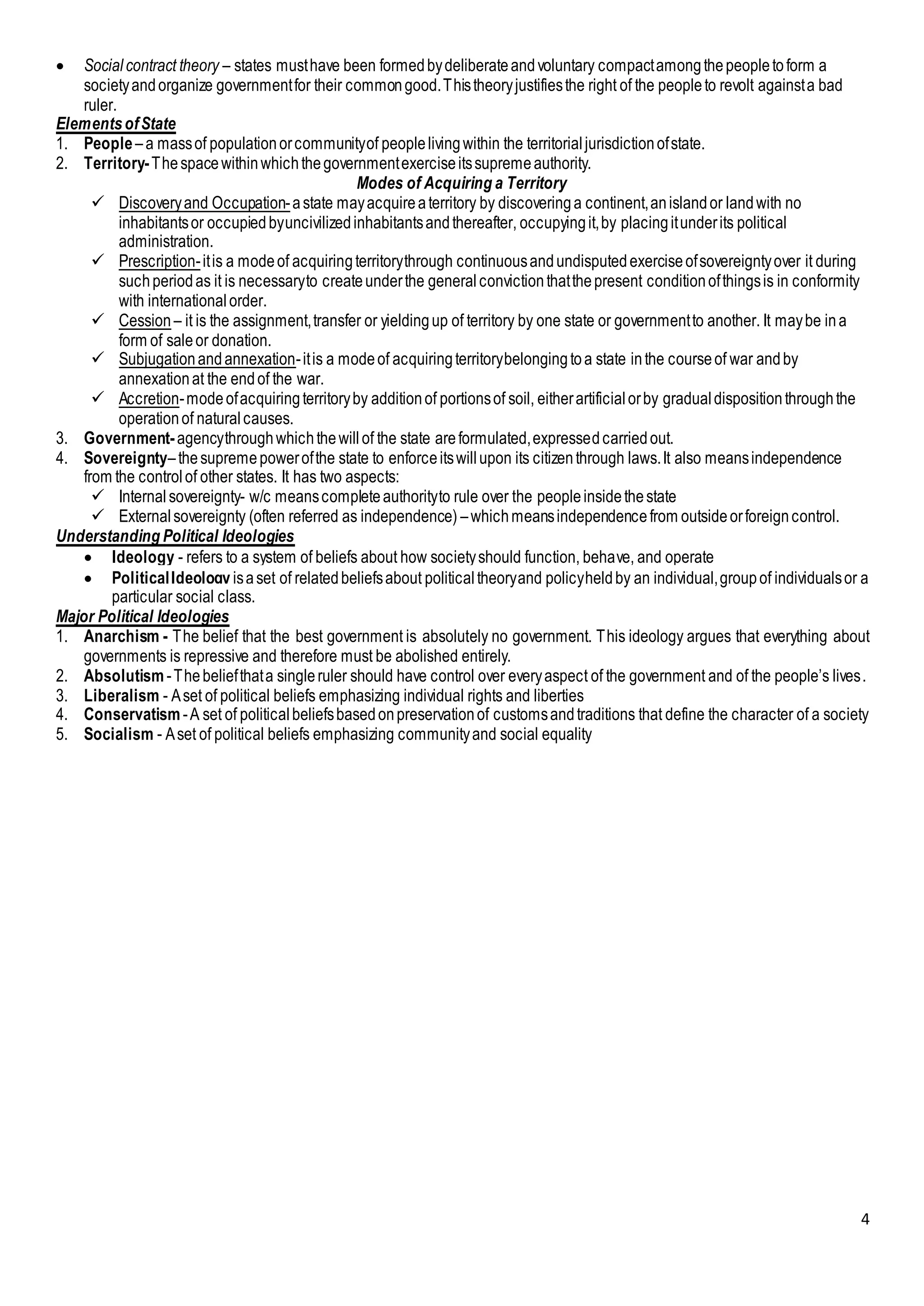1. Politics involves conflict and cooperation in society as people work to establish order and rules through government. It can be defined as the process of creating, maintaining, and amending societal norms or rules to resolve conflicts.
2. Political science is the study of government, politics, and power relationships. It examines topics like political theories, comparative government systems, international relations, and public policy.
3. Governance refers to the exercise of political authority and management of a country or organization. It involves the complex processes by which groups in society make and implement decisions. Effective governance requires proper utilization of resources and meeting public expectations.



